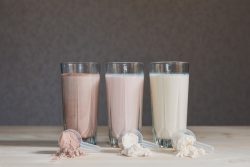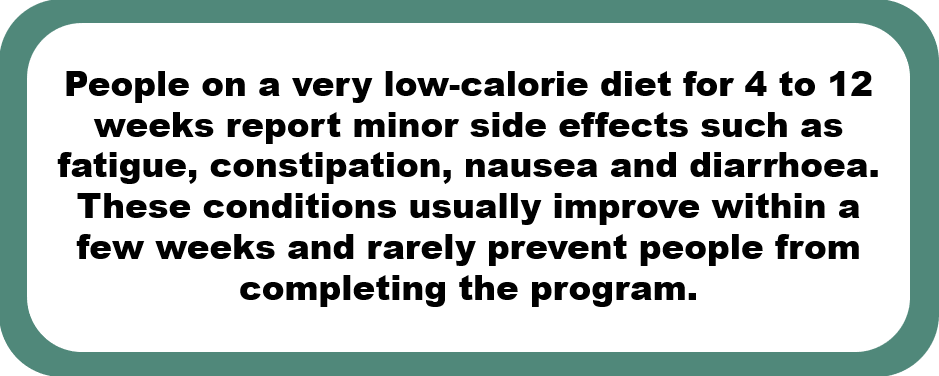Very Low Calorie Diet

Very Low Calorie Diet
What is a Very Low Calorie Diet?
A very low-calorie diet is defined as those with a calorie intake of 800 calories or less a day. The recommended calorie intake for adults is 2000kcal per day for women and 2500kcal for men.
Due to the large calorie deficit, weight loss on this diet can be significant but they should not be undertaken without medical supervision or for any longer than 12 weeks. If you take regular medication for your diabetes, blood pressure or cholesterol, these may need to be reviewed by your healthcare professional.
How does it work?

Typically, the diet involves replacing your normal meals with soups, shakes and bars for 12 weeks, with a slow reintroduction of other foods.
Rapid weight loss can be extremely motivating but is unsustainable in the long-term. A VLCD require regular support and counselling from a healthcare professional to help you with long-term behaviour change so that you can maintain the weight loss.
How effective are Very Low Calorie Diets?
If you have a BMI over 30 then a very low-calorie diet may let you lose about 3 to 5 pounds (1 – 2kg) per week, for an average total weight loss of 44 pounds (20kg) over 12 weeks.
Losing that amount of weight may improve weightrelated medical conditions, including type 2 diabetes, high blood pressure, and high cholesterol. Evidence from a small-scale study in people with type 2 diabetes suggested that this approach
improved HbA1c levels and resulted in weight loss in the majority of participants. Larger studies (including the DiRECT trial) suggest this may be very successful weight loss diet in the short-term. The evidence is still awaited for longer-term outcomes.
After the 12 weeks, you will begin a slow reintroduction of foods. This will be done alongside regular physical activity to maintain the initial weight loss and help with adopting a new healthy eating lifestyle.
Are they safe to follow?

These types of diets should be undertaken through a commercial organisation such as the 1:1 diet, or the NHS Low Calorie Diet Programme to make sure that you are getting all of the nutrients your body needs and also the supervision and monitoring provided by a healthcare practitioner.
It isn’t recommended for people that are:
- Under 18 years old
- Pregnant
- Breastfeeding
- Have had an eating disorder
If you are on medication for type 2 diabetes that puts you at risk of hypoglycaemia, such as insulin therapy, sulphonylureas or glinides, VLCD’s can significantly increase the risk of having a hypo. You should always speak to your healthcare team or GP if you are planning on changing your diet plan so they can help you do this safely.

If you would like a printable version of this resource, click here.

